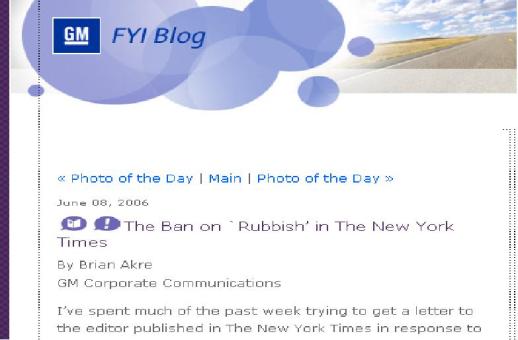The world of social media matters. To prove this, I will point you to a story. But for you to understand that story fully, I need to point you to an earlier story.
Back in the mid-90’s, the Internet’s World Wide Web looked like an intriguing communications space, though far from proven. Its users were mostly geeks and its applications mostly sketchy and technical. I had put up a small company web site for my employer by then, but wasn’t thinking terribly much about it. Then, one evening, I opened an admittedly young bottle of 1994 Rutherford Hill Napa Valley Cabernet Sauvignon. Printed right there on the cork, along with the winery phone number, was “http://www.rutherfordhill.com“.

My goodness. Think about this. Here was one of world’s most low-tech producers, a winery, thinking enough of the World Wide Web to print a web site address on a cork — a cork that was designed to stay in some bottles of this wine for half a decade or more. What a commitment. It meant that 5 or 10 years from now, this winery would still have its web site operating. It meant, indeed, that this emerging communications environment was real, durable, and ubiquitous across industries. It was my “cork moment”. From that point forward, I knew the web would change much about our world.
Fast forward to today. The world of social media – blogs, wikis, MySpace, etc – is intriguing. Its users have been mostly kids and geeks and its applications mostly sketchy and personal. I’ve helped my employer put up a small history blog, but haven’t been thinking terribly much about it. Frankly, I’ve been waiting for a cork moment.
Then, one recent evening, I was fortunate enough to hear Brian Akre of General Motors tell the story about the tussle between GM and the New York Times concerning a letter to the editor. The scrap started when a NY Times op ed piece by Thomas Friedman accused the company of being “dangerous to America’s future” and likening it to a “crack dealer”. Taking a first traditional step to remedy the claims, GM sought to have a rebuttal letter published by the Times. When informed by the Times that their letter in response to the 800-word column could contain 175 words max, GM began a negotiation process that ultimately bought them an additional 25 words.
As Brian tells the story, “Our letter opened with a paragraph that accurately summarized the most bizarre elements of Mr. Friedman’s attack, then reacted with this one-word sentence: ‘Rubbish.'”
The New York Times objected to the use of the phrase “Rubbish.” and instead offered “We beg to differ.”
So ensued an ultimately futile stand-off between the companies. Frustrated with the proceedings, GM opted to drop the negotiations with the New York Times and instead came clean with this entire story via its own blog. As it turned out, the blog itself became an online attraction, rapidly drawing hundreds of incoming links. The full story was soon picked up by publications ranging from major daily newspapers to the Columbia Journalism Review. In a strange turnabout, GM was sometimes characterized as the “David” to the New York Times’ “Goliath”. From a public relations perspective, imagine GM, with a market cap of over $19 billion, being characterized as “David”.

My goodness. Think about this. Here was one of the world’s largest employers effectively taking on one of the world’s most influential newspapers on that newspaper’s home turf – public opinion – via a blog. Could anyone now believe that this communications environment was not real, durable or ubiquitous across industries? This was my “rubbish moment”. I must now acknowledge that social media (or whatever it is destined to be called) will change much about our world.
(Posted by Ray Jordan)


